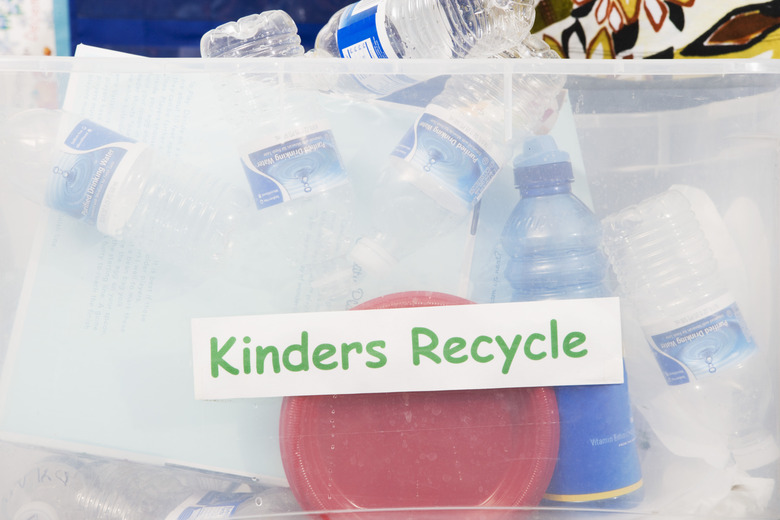The Effect Of Recycling Plastic Water Bottles On The Environment
Plastic water bottles are becoming a growing segment of the municipal solid waste stream in the United States. The American Chemistry Council estimates that the average consumer uses 166 plastic water bottles each year and that 2.5 million plastic bottles are thrown away every hour. While plastic water bottles offer convenience, they also create unnecessary waste in landfills. By recycling your plastic water bottles, you can positively impact the environment in several ways.
Reduced Waste
Reduced Waste
Landfill space is limited, and the conditions in landfills make it nearly impossible for anything, including plastic, to biodegrade. Recycling plastic water bottles helps to conserve space that can be used for other waste. According to Earth911, 7.4 cubic yards of landfill space is saved for every ton of plastic that is recycled. Recycling can also help reduce the number of plastic water bottles that end up as litter in roadways and water sources.
Resource Conservation
Resource Conservation
Recycling plastic water bottles helps to conserve natural resources, specifically oil, which is a nonrenewable natural resource available only in limited supply. The Environmental Protection Agency estimates that recycling one ton of plastic conserves approximately 3.8 barrels of crude oil. In 2008, 2.12 millions of plastic were recovered for recycling, the equivalent of roughly 7.6 million barrels of oil.
Energy Conservation
Energy Conservation
Creating new materials from existing materials uses significantly less energy than using raw materials. According to the Environmental Protection Agency, recycling one pound of polyethylene terephthalate (PET), the plastic most commonly used in water bottles, conserves approximately 12,000 BTUs (British thermal units) of heat energy. The recycling process uses up to two-thirds less energy than traditional manufacturing, significantly reducing the strain on the traditional power grid, which is based on the burning of fossil fuels.
Reduced Greenhouse Gas Emissions
Reduced Greenhouse Gas Emissions
The plastic manufacturing process results in the creation of greenhouse gases, including carbon dioxide, which is thought to contribute significantly to the global warming effect. Since the process for recycling plastic water bottles requires less energy and fossil fuels, it also results in fewer greenhouse gas emissions. The Environmental Protection Agency estimates that the average family can reduce their carbon dioxide emissions by up to 340 pounds annually simply be recycling their plastic waste.
Decreased Pollution
Decreased Pollution
In addition to reducing greenhouse gas emissions, recycling plastic water bottles also helps to decrease the amount of pollution in the air and water sources. Many landfill facilities will incinerate plastic bottles to save waste, which can emit toxic pollutants or irritants into the air. The plastic resin used to make water bottles also contains potentially harmful chemicals which can seep into the soil or groundwater if they are able to break down in the landfill.
Cite This Article
MLA
Lake, Rebecca. "The Effect Of Recycling Plastic Water Bottles On The Environment" sciencing.com, https://www.sciencing.com/the-effect-of-recycling-plastic-water-bottles-on-the-environment-5147392/. 11 December 2018.
APA
Lake, Rebecca. (2018, December 11). The Effect Of Recycling Plastic Water Bottles On The Environment. sciencing.com. Retrieved from https://www.sciencing.com/the-effect-of-recycling-plastic-water-bottles-on-the-environment-5147392/
Chicago
Lake, Rebecca. The Effect Of Recycling Plastic Water Bottles On The Environment last modified August 30, 2022. https://www.sciencing.com/the-effect-of-recycling-plastic-water-bottles-on-the-environment-5147392/
